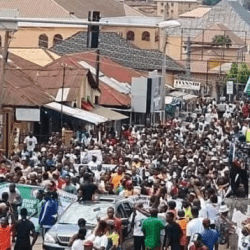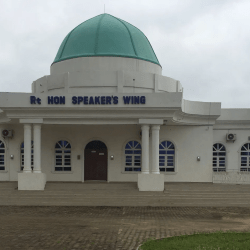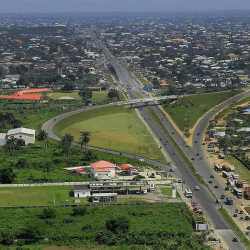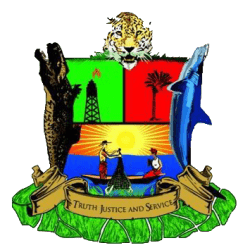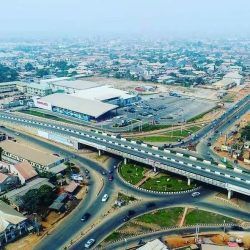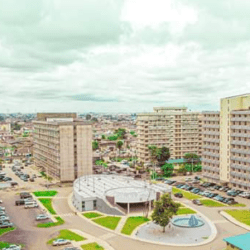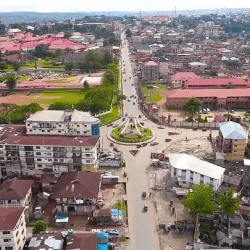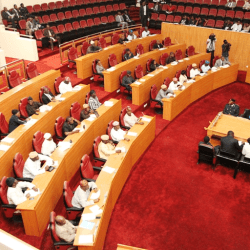Speakers of the Benue State legislature, the House of Assembly, since Nigeria’s return to civil rule in 1999 are:
- 1999–2003: Rt. Hon. Margaret Icheen (first female Speaker).
- 2003–2007: Rt. Hon. Mzenda Iho.
- 2007–2011: Rt. Hon. Terseer Tsumba.
- June–Nov 2011: Rt. Hon. Terhemen (Prince) Tarzoor.
- Nov 2011–Nov 2012: Rt. Hon. David (Dave) Iorhemba — resigned Nov. 9, 2012.
- Nov 2012–June 2015: Rt. Hon. Emmanuel Teryila Ayua.
- June 2015–July 2018: Rt. Hon. Terkimbi Ikyange — impeached July 2018.
- July 2018–June 2023: Rt. Hon. Titus Uba (elected after Ikyange’s impeachment; re-elected Speaker of the 9th Assembly in 2019).
- June 2023–Aug 24, 2025: Rt. Hon. Aondona Hyacinth Dajoh — resigned Aug. 24, 2025.
- From Aug 24, 2025: Rt. Hon. Alfred (Berger) Emberga —
Speaker as of August 2025
- Hon. Alfred Emberga (Makurdi North Constituency)
- Elected as Speaker on August 24, 2025, following the resignation of his predecessor Hon. Aondona Dajoh.
- Previously suspended during a legislative dispute, Emberga emerged through an emergency plenary session and has emphasized reconciliation and collaborative governance.
Past Speaker
- Hon. Aondona Hyacinth Dajoh (Gboko West Constituency)
- First elected as Speaker following the inauguration of the 10th Assembly on June 5, 2023.
- Resigned from the position on August 24, 2025, stating that the decision was in “good faith and in the best interest of the state”.
Speaker Prior to Aondona Dajoh
- Hon. Titus Uba (Kyan Constituency)
- Became Speaker in August 2018, after the impeachment of his predecessor, Terkimbi Ikyange.
- Re-elected as Speaker for the 9th Assembly in 2019.
Earlier Speakers
- Hon. Terkimbi Ikyange
- Served as Speaker of the 8th Assembly, elected in 2015 under the APC.
- Impeached in July 2018, after a motion of no confidence and a vote by a majority of Assembly members; his removal paved the way for Titus Uba’s election.
- Tsegba Terngu and Terhemen Tarzoor
- Both are noted as former Speakers in various sources:
- Tsegba Terngu was suspended in 2024 for alleged insubordination within his party.
- Terhemen Tarzoor served as Speaker at an earlier, unspecified time, before later serving as Nigeria’s Ambassador to Namibia.
- Precise dates of their tenures were not provided in the sources.
- Both are noted as former Speakers in various sources:
Recent Speakers
| Tenure Period | Speaker | Notes |
|---|---|---|
| 2015 – July 2018 | Terkimbi Ikyange | Speaker of 8th Assembly; impeached 2018 |
| August 2018 – 2023 | Titus Uba | Impromptu successor; re-elected 2019 |
| June 2023 – Aug 2025 | Aondona Hyacinth Dajoh | Speaker of 10th Assembly; resigned 2025 |
| From Aug 24, 2025 | Alfred Emberga | Current Speaker |
Key Highlights
- Terkimbi Ikyange’s removal in 2018 marked a significant legislative shift in Benue State’s politics.
- Titus Uba’s leadership brought relative stability through the 9th Assembly.
- Aondona Dajoh’s resignation in August 2025 came amid internal tension but gave way to a quick transition to Emberga.
- Hon. Alfred Emberga’s election signals a fresh leadership phase with a focus on unity and constructive collaboration.
Benue State House of Assembly
The Benue State House of Assembly (BSHA) is the legislative arm of government in Benue State, Nigeria. Established in 1976 after the creation of Benue State, the Assembly serves as a unicameral legislature, responsible for making laws, providing oversight functions, and representing the people’s interests in governance.
With 32 members, each representing one of the state’s constituencies, the Assembly plays a central role in shaping policies that directly affect the socio-economic and political development of Benue State.
Structure and Membership
- Type: Unicameral legislature
- Number of Seats: 32
- Representation: Each member represents one constituency across the state.
- Tenure: Members serve a four-year term, renewable through elections.
- Leadership: The Speaker presides over the Assembly, assisted by the Deputy Speaker and Principal Officers.

Functions of the Benue State House of Assembly
The Assembly has three core functions, similar to other legislative bodies in Nigeria:
- Law-Making
- Drafting, debating, and passing bills.
- Laws must receive the Governor’s assent to take effect.
- Oversight
- Monitors the activities of the Executive Arm.
- Ensures accountability in the use of public funds.
- Conducts investigations through House Committees.
- Representation
- Channels the needs, aspirations, and grievances of constituents.
- Engages in constituency projects and public hearings.
Leadership
The Assembly is led by a Speaker, who is the head of the legislature.
- The Speaker (as of August 2025) is Hon. Alfred Emberga, representing Makurdi North Constituency.
- Past Speakers include Aondona Dajoh, Titus Uba, and Terkimbi Ikyange, among others.
Committees of the House
The Assembly operates through standing and ad-hoc committees, which handle specialized legislative functions. Common committees include:
- Appropriations and Finance
- Public Accounts
- Health and Education
- Works and Housing
- Security and Information
Sessions and Procedure
- The Assembly conducts its business through plenary sessions held at the Assembly Complex in Makurdi, the state capital.
- Members introduce motions, bills, and petitions.
- Decisions are reached by majority votes.
Relationship with Other Arms of Government
- Works closely with the Executive, led by the Governor, especially in budget approval and implementation.
- Serves as a check on the Executive’s power.
- Interacts with the Judiciary, particularly on constitutional and legal matters.
Notable Developments
- The House has witnessed several political crises, including impeachments of Speakers (e.g., Terkimbi Ikyange in 2018).
- It has been central to policy reforms in agriculture, security, and education, reflecting Benue’s identity as the “Food Basket of the Nation.”
- Recent changes in 2025, with the resignation of Speaker Aondona Dajoh and the election of Alfred Emberga, highlight the Assembly’s dynamic political environment.
The Benue State House of Assembly is a vital institution in Nigeria’s democratic system. It represents the people of Benue State, makes laws, checks the government’s performance, and ensures that democracy thrives at the state level.
